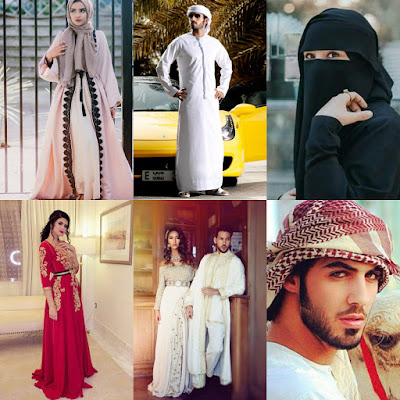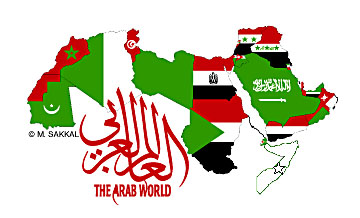7 Things You Should Know About an Arab Wedding
7 Things You Should Know About an Arab Wedding
The
Arab World consists of 22 countries in the Middle East and North
Africa, so although there are some commonalities there are many
differences.
The Arab people are very
diverse. Most are Muslims but there is a strong Christian presence in
most Arab countries. Lebanon has the largest Christian population
where the split is approximately 50/50 between Christians, Muslims
and people of other faiths. Other variations include city weddings
which incorporate more western traditions like cake cutting and
tossing of the bouquet versus rural country weddings which are more
traditional. Even allowing for the differences in faiths there are
still a lot of commonalities between the two, whereas Christians will
hold the wedding ceremony in a Church and Muslims in a Mosque.
We have covered in detail
in other posts what takes place in a Muslim wedding. This includes
the marriage proposal, engagement, henna, nikah, and walima. There
are many cultural variations, but Islamically, only the nikah and
walima are required.
Here are
7 things about an Arab wedding you should know:
- Marriage Proposal: This is usually done at a family level where the groom and his family will meet with the bride’s family to ask permission to marry their daughter. In the absence of a father the eldest male relative will be asked. After both the bride and the bride’s father agrees there will be light refreshments that will be served.
- Reading of the Fatiha: Fatiha is the opening short chapter of the Quran which Muslims recite not only in all prayers, but at any important event including weddings
- Engagement: Also called Khetbah, ‘Katb Kitab’ or Khutbah is a simple wedding party where the bride and groom may be dressed in matching colors and they exchange rings. There is usually dinner and cutting of a cake involved as well. This does not have an Islamic significance.
- Henna party: The Arab version of a “bachelorette” party. Traditionally it has been an all female event where Henna is applied to the brides hands and feet. There is food, music and dancing.
- Marriage Contract: Nikah, Aqd Nikah, Aqd Qiran, Aqd Zawaj, Katb el-Kitab are all variations of the marriage contract. This is where an Imam or respected member of the community performs the marriage ceremony including filling out of the legal documents. The wedding must usually be done with the bride’s permission and being witnessed by two adult men, usually from the family. The husband must offer an agreed upon mahr which is a marriage gift to the bride. There is no set amount of what a mahr should be other than it be meaningful to the bride and affordable to the groom. It can be paid in cash, property, travel (eg Hajj, Umrah) or many other ways.
- The Zaffe: A procession that is accompanied to the beat of drums with a troop of dancers performing in anticipation of the couple’s entry. The Zaffe may include a cultural dance called “dabke” (dabkeh) where the groom and other members of the male party will dance and the audience participates with the clapping of hands. Although “dabke” is not a dance all Arabs do, the Zaffe usually consists of the bride and groom sharing a dance after the entrance with their family as well.
- Ululation:
High pitched sounds like “lulululu” made by women to celebrate
the wedding.
Of course, as in all
weddings, Arab-Muslim weddings have delicious food and non-Alcoholic
drinks. The festivities before, during, and after the wedding can
last days. Honeymoons, too, have become a part of weddings especially
in cities.
As there are many “Arab” countries, some of the
above-mentioned traditions may only be practiced by some and not the
others. The above-mentioned 7 are a general list of what to expect at
an Arab-Muslim wedding.






Hi Chaima,
ResponderEliminarThank you for this post about the arab wedding, because I consider it one of the best weddings in the world, it has a lot of diversity and the ambient is wonderfull !
Hi salima,
ResponderEliminarThanks for your comment, you are a right arab wedding are amazing with their beautifull traditions,music, dance, food...
See you soon!